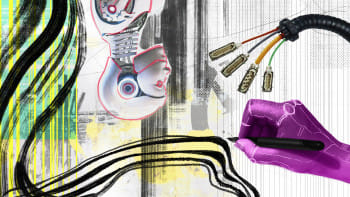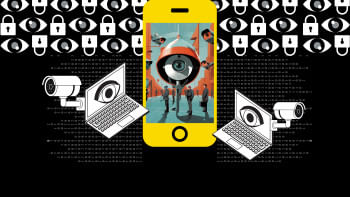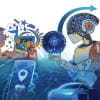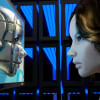AI, AI, Captain: Will machines end our creativity?

I walked into the office only to find a slice of sunlight had settled onto my desk even before I could. The rays had already touched two figurines on my table, one of the comic knight Don Quixote and the other of his squire Sancho Panza. Their elongated shadow under a golden globe made me think of the adventures that this duo had undertaken in the novel of the seventeenth-century Spanish author Miguel Cervantes. As I reclined on my chair and powered up my laptop to brush up my class notes, I had a sudden urge to respond to the chiaroscuro. Then again, with technology at my disposal, I felt rather less equipped to express my thoughts.
Why don't I ask my machine to respond to my philosophical quandary? I wrote a prompt for the AI generator. And within seconds, a rhymed sonnet appeared. While the first stanza poetically renders my prompt, the poem ends with the AI's take on my thought:
"In the dawn's tender embrace, light tiptoes through the pane,
Extending shadows, a waltz of tales, a poetic terrain.
Two figures emerge, Quixote and Sancho, in grand,
Beside a golden globe, in a dance across the sand…
Don Quixote's quest, Sancho's laughter, forevermore.
A celestial performance, nature's grand ballet,
Whispers of adventure, as the sun heralds the day.
Through the window's portal, where time seems to suspend,
A tapestry woven, where fiction and reality blend."
I was excited about my first ever AI-generated poem. I shared it on social media with my friends, who seemed to be equally impressed by the machine's ingenuity. Then there were experts with a better understanding of machine learning. The agency that I attributed to the machine in articulating my thoughts was questioned by some.
Will artificial intelligence end human creativity? Or will it complement and expand it? Only recently have I started using ChatGPT to learn what tools our students were using to outsmart us teachers in exams. For me, it was more of a utility tool. But after using it for a creative purpose, I began to see it in a different light. That night, my wife and daughter, all three of us being English literature majors and occasional poets, revelled in our new-found toy. The laptop kept on changing laps, and the machine produced poems about all the people we hate. The artificial poems became so therapeutic, and I don't think the three of us shared such genuine laughs in recent times. The machine was making us human.
The machine had me convinced that I was having some intellectual communication with a higher being. But there was a glitch. It was almost like a deja vu experienced by Neo in The Matrix. Most of the poems were written in couplets. The forms and styles were rather repetitive. It changed only when I specifically asked it to write in free verse or other forms. I asked the AI generator to explain. It confessed that the structural similarities were due "to the underlying patterns and conventions that the model has learned during its training." Then, in an almost anticlimactic manner, it dented my enthusiasm, saying, "It's important to note that while ChatGPT can generate creative and contextually relevant text, it doesn't have consciousness, personal experiences, or emotions. It draws on statistical patterns learned from data and aims to generate responses that are contextually appropriate based on the input it receives."
The poetic output is nothing more than a fleshing out of my input. In this mode of production, both the machine and I are commodities, an idea that Karl Marx preferred in his Das Kapital. In a capitalist regime, any form of utility suffices to make anything or anyone an official member of the world of commodities, Marx wrote.
So will machines make us creative people redundant with their word salad? Our fun family poetry drill made me realise one thing: it was homogenising creativity. Certain words and concepts were repeated. I think I will recognise an AI-produced poem the next time I see one. Nevertheless, the rise of the machine does create an automation anxiety. Many creative writers, especially in the media market, might soon find themselves out of jobs. Machines will always be a cheaper commodity, which can cause a decline in the demand for human creativity. Am I feeding the data to the machine that will one day outpace or outdo me in my own game?
Is there going to be a time when the poet's profession will die? And is there going to be a sequel to the movie Dead Poets Society, featuring the loyal Sancho Panzas of the future to condone the blackboxing and commodification, and say in a parody, "AI, AI, Captain!"
The answer, my friend, is blowing in the wind.
Dr Shamsad Mortuza is professor of English at Dhaka University.
Views expressed in this article are the author's own.
Follow The Daily Star Opinion on Facebook for the latest opinions, commentaries and analyses by experts and professionals. To contribute your article or letter to The Daily Star Opinion, see our guidelines for submission.

 For all latest news, follow The Daily Star's Google News channel.
For all latest news, follow The Daily Star's Google News channel. 










Comments